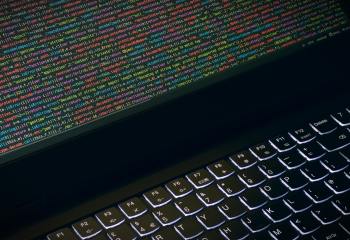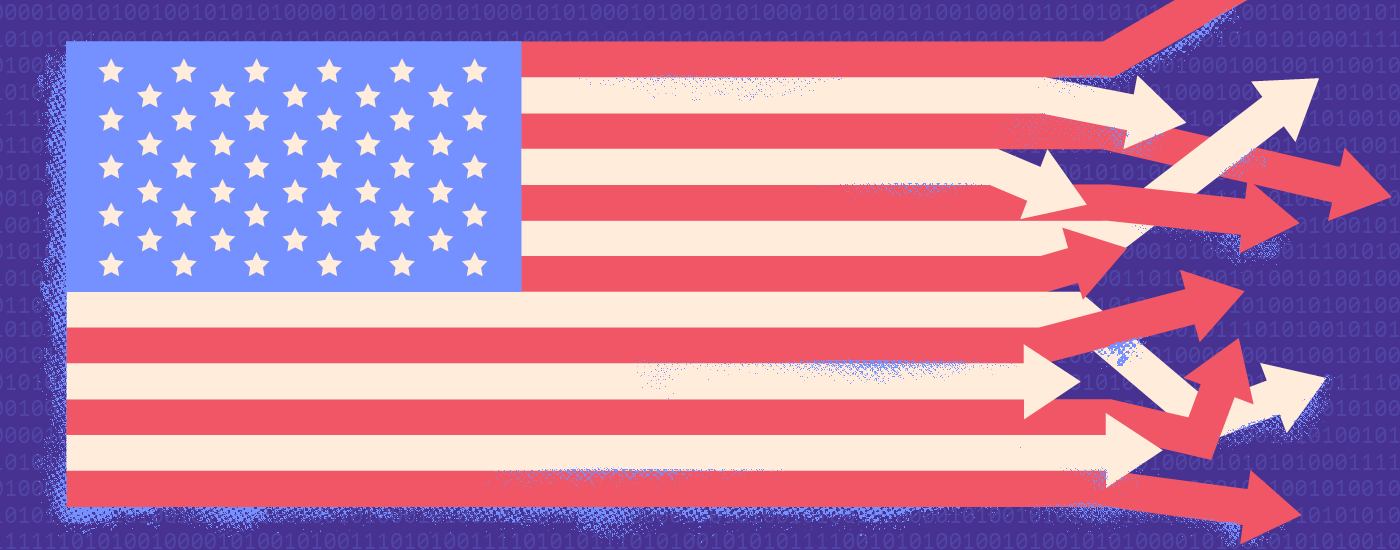
What’s next for tech and democracy?
Midway through a year rocked by a pandemic, protests and politics, we asked leading researchers and policy thinkers: What new questions relating to technology’s impact on democracy have emerged or are emerging during this period? In light of these new questions, what are your predictions for the rest of 2020?
The responses we received over the summer were far-ranging, but they all underscore how significantly technology, especially social media, is shaping our understanding of this moment.
The scholars are all members of the Knight Research Network, a growing group of research centers, universities and independent policy organizations supported by Knight Foundation. The effort is part of a $50 million investment in new research to foster an informed public dialogue about the ways digital technology is changing our democracy.
Their responses appear below, loosely organized by theme: The big picture, the 2020 election, the techlash, content moderation and free expression online, competition and antitrust, technology and inequality, and some final thoughts.
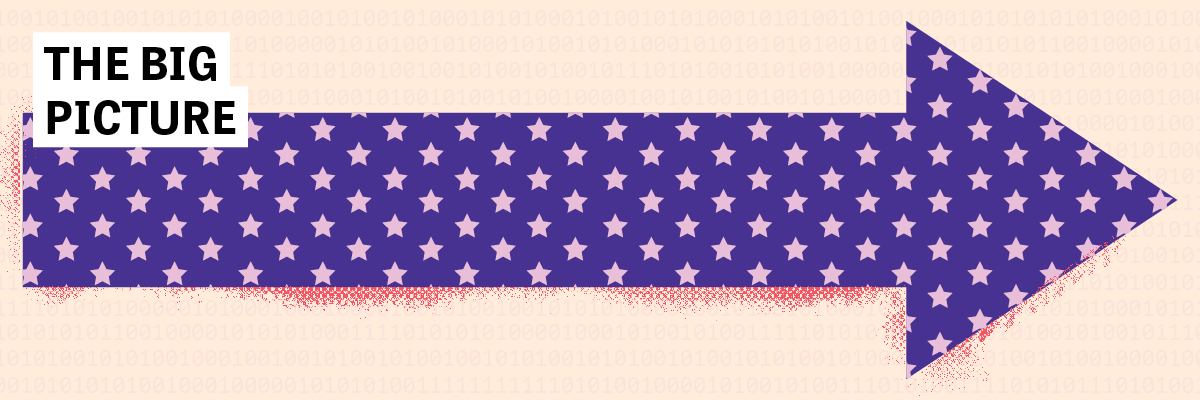
Information technology, the internet and social media are at the heart of both our strengths and our weaknesses in this period in America. Their prominence and power in our lives warrants neither utopianism nor despair but rather calls for prudential judgment and responsibility. They are tools. And our challenge is to learn to use them constructively, rather than allow our society’s life to be deformed by destructive abuses of them.
Yuval Levin, American Enterprise Institute
- Full text
In recent years, it has become increasingly impossible to avoid the conclusion that the breakdown of our political culture is intertwined with the rise of particular forms of information technology and social media. The peculiar mix of polarization and isolation — hostility and loneliness — that characterizes this moment is related to the ways in which the internet and social media tend to confound common action with personal expression, intensify peer pressure, and make reflection and accommodation more difficult. This is a function both of the business model and of the core architecture of social media, and so requires some rethinking of both.
And yet, over the course of this year in particular, we have also seen some important ways in which the internet and social media give us strength in this era. The national response to the COVID-19 pandemic, for all its faults, would have been far more difficult to bear without widespread access to the internet, which has enabled Americans to stay connected, and has allowed many to work remotely from their homes rather than losing their jobs. And social media has played a crucial role in powering a truly national response to police violence — enabling not only expression but also genuine organization in the cause of justice and reform. This dark year would have been much harder on our country without these technologies.
It is clearer than ever, therefore, that information technology, the internet and social media are at the heart of both our strengths and our weaknesses in this period in America. Their prominence and power in our lives warrants neither utopianism nor despair but rather calls for prudential judgment and responsibility. They are tools. And our challenge is to learn to use them constructively, rather than allow our society’s life to be deformed by destructive abuses of them.
This poses a challenge to policymakers, who will need in the coming years to formulate some rules of the road for the internet age — to make the most of the potential of these technologies while forthrightly restraining abuses and excesses. But above all it poses a challenge to all of us as citizens. We will need to approach these technologies as tools and use them as means, but not allow them to distort our understanding of the basic ends and aims of our national life.
There is reason to think that we will see more of both the dark side and the bright side of the internet age in what remains of this year. The fall election season will no doubt make us wish at times that the scourge of social media had never befallen us; but several more months of pandemic isolation will also make us grateful for the connectivity, engagement and even sociality made possible by these technologies.
We predict that 2020 will be seen as a pivotal moment in U.S. history. We hope that it will be remembered as a year where democracy faced numerous challenges, but prevailed.
Talia Stroud, University of Texas at Austin
- Full text
We predict that 2020 will be seen as a pivotal moment in U.S. history. We hope that it will be remembered as a year where democracy faced numerous challenges, but prevailed. We think that the second half of the year will unfold like a suspenseful movie. There has been a building clash between science and politics, and the second half of the year will reveal what prevails.
The success of state interventions will largely determine whether the U.S. continues to support democratic institutions, like the rule of law.
Alex Rosenblat, Data & Society
- Full text
Social unrest due to mass unemployment and generalized uncertainty is playing a key role in support for civil rights movements, like Black Lives Matter protests. In addition, because all media is now reflected through the lens of COVID-19, from infection rates to economic downturns, and because the pandemic presents daily uncertainty, citizens will look for strong leadership to counter it. While that could make the case for autocratic leadership, the global examples of success in combating the effects of the disease all suggest that a strong and organized administrative state is the best solution. That presents a dilemma for the U.S., which has a thick strain of cultural distrust of the state. The success of state interventions will largely determine whether the U.S. continues to support democratic institutions, like the rule of law.
I believe the key questions underlying our studies of technology and democracy should be integrating intersectional understandings of power into disinformation and politics.
Alice Marwick, University of North Carolina, Center for Information, Technology, and Public Life
- Full text
Increasingly, we see the integration of formerly disparate strains of intellectual inquiry in the areas of concern to CITAP and the KRN in general. Disinformation around the COVID-19 pandemic, amplified throughout partisan media and by political figures, has resulted in a epistemologically fragmented landscape where different regions of the country have fundamentally different understandings of the severity of the virus and how to best respond to it, with deadly consequences. The differential impact of COVID-19 on people of color, poor people, and the elderly demonstrates the role of identity not only in taking up mis/disinformation, but on acting upon it. Finally, the global popularity of Black Lives Matter protests against police brutality demonstrate the significance of social media activism in changing widespread social attitudes. It is no longer enough to study such subjects in parallel: we must integrate our research projects across topics and methodologies. However, at the same time, we believe it is important not to idealize the pre-2016 landscape as epistemologically coherent. Looking backwards, journalists and scholars often seem nostalgic for a time before partisan media and social media platforms, where legacy media furthered a single set of truths believed by all. Of course, this is a mythic past. In contrast, the idea of epistemic fragmentation is fundamental to differential experiences of people living in the United States– for example, the way the Black press and White press reported on civil rights.
Thus, I believe the key questions underlying our studies of technology and democracy should be integrating intersectional understandings of power into disinformation and politics. Much of the “canon” of this emerging field comes from academic fields that struggle with diversity. However, in order to truly understand the complex interplay between social platforms, media, partisanship, disinformation, and political activism, we must integrate insights from critical race studies, feminist theory, queer theory, and other areas of research that explicitly center theories of power and inequality.
Will reality swamp spin? Will the ease of organizing protests via social media outstrip the ability to craft solutions to the problems being protested? If it becomes easier to spread information about grievances, does that mean we are more susceptible to mass revolts that come to topple existing institutions, without clear plans to put in place solutions to perceived problems?
Jonathan Nagler, New York University
- Full text
Technology’s biggest impact on democracy may well have been the fulfillment of one of the promises of social media early on. When academics and pundits first considered the role of social media in politics, it was in the bloom of Arab Spring: Social media was viewed as a way for like-minded individuals to share information about a secretive regime and to coordinate protest activities that could topple that regime. It is hard to imagine so many people participating in Black Lives Matter protests in the United States without the coordinating mechanism of social media. But technology in the pandemic has also laid bare and exacerbated inequalities in the U.S. On top of huge income inequalities, people are now even more aware of ‘personal-risk’ inequalities: Essential workers on bicycles deliver food for near minimum-wage paychecks to information workers who continue to earn high wages while working at home and never venturing out to put themselves at risk from human contact. The pandemic has also brought forth new data sources of major public relevance. Whereas the state of the U.S. economy is generally measured by the U.S. government (not discounting the meaning of the stock market), people may go to assorted websites created by non-governmental entities to see the number of cases, hospitalizations and deaths attributed to COVID-19. So what are new questions? The questions are: Will these things impact politics? Will reality swamp spin? Will the ease of organizing protests via social media outstrip the ability to craft solutions to the problems being protested? If it becomes easier to spread information about grievances, does that mean we are more susceptible to mass revolts that come to topple existing institutions, without clear plans to put in place solutions to perceived problems? The prediction for the second half of 2020 is that the U.S. will be in remarkably bad shape, and that we will have an election with a lot of controversy over absentee voting and the counting of votes.
There remains a growing disconnect between Americans, who love the internet, and their government representatives, who are determined to burn the internet down.
The second half of 2020 will include a battle for the internet’s soul.
Eric Goldman, Santa Clara University
- Full text
There remains a growing disconnect between Americans, who love the internet, and their government representatives, who are determined to burn the internet down. We take for granted that the internet will continue to benefit our lives in ways big and small, especially as we have moved so many of our key institutions (government, employers, schools) online. Yet, those benefits are potentially quite fragile, as little changes in government regulation could undermine or eliminate [them]. The second half of 2020 will include a battle for the internet’s soul, to see if politicians can destroy what we love about and need from the internet despite the clear wishes of their constituents.
Trust in these three institutions [science, journalism and government] will determine the success for one of the exit strategies of this pandemic: the adoption of a COVID-19 vaccination.
Jevin West, University of Washington Center for an Informed Public
- Full text
Will trust in science, journalism and government be any better after the election? The increased politicization of science could decrease trust in an institution that has maintained relatively high levels of trust over the last several decades. Local journalism will likely have fewer newspapers to trust, even in just six months, but those with local newspapers may trust these venues more than before. Trust in government will likely be divided based on who wins the election. Trust in these three institutions [science, journalism and government] will determine the success for one of the exit strategies of this pandemic: the adoption of a COVID-19 vaccination. We will be tracking the abundant misinformation that will surround this issue.
In the second half of 2020, we are likely to see further experiments both by government and private industry with the use of technology to direct market outcomes.
Ramsi Woodcock, University of Kentucky
- Full text
Although majorities support the protests and pandemic mitigation measures, the emotional distance between those for and against could not be greater. While there seems to be a growing consensus that social media is in part to blame, it is difficult to see a solution appearing in the second half of 2020. Moves by major platforms to more carefully regulate hate speech are likely to drive further polarization, by splitting the electorate between different platforms. Attempts to use the antitrust laws to break up the platforms are a long-term project, due to the delay incident to litigation, and in any case would only further fragment and polarize the electorate into multiple speech bubbles. Attempts by newspapers to negotiate large payouts from social media platforms are unlikely to bear fruit in the short term, and even if they did, newspapers have already themselves become so polarized that they are unlikely to be able to unite the country even once they return to financial security. There is real danger of complete collapse and civil war come November. Short of the unthinkable alternative of rationing access to internet speech, one that would eliminate many of the democratic advantages of social media, along with the disadvantages, it is not clear what can be done to address the problem in this timeframe.In the second half of 2020, we are likely to see further experiments both by government and private industry with the use of technology to direct market outcomes. In the event that the federal government undertakes additional [economic relief] measures, millions of Americans will for a second time see evidence that government can credit their bank accounts with cash at the touch of a button, or pause their student loan payments. And millions of Americans shopping from home for shortage items will continue to learn that retailers can use online reservations systems and preordering, rather than price increases, to ration access. This is likely to seed longer-term demands by the electorate that government and industry use technology to plan market outcomes.
Without physical contact and casual socialization, many already strained institutions have approached the breaking point. In the long term, market forces will revive the fortunes of all sorts of commercial industries damaged by the pandemic. There’s far less clarity as to the mechanisms that can or will revive civil society institutions.
Eli Lehrer, R Street Institute
- Full text
I believe that the pandemic in particular has brought to the fore one largely new set of questions concerning the ability of core civil society institutions which undergird democracy to function in the absence of face-to-face contact. Technology has made nearly all core interactions necessary for civil society institutions possible online: Americans can meet, worship, discuss current affairs and attend cultural events from their computer screens. But, without physical contact and casual socialization, many already strained institutions have approached the breaking point. In the long term, market forces will revive the fortunes of all sorts of commercial industries damaged by the pandemic. There’s far less clarity as to the mechanisms that can or will revive civil society institutions.
This generally illiberal populist trend on both sides will not go unanswered. Combined with a decline in civil society accentuated by the pandemic and a resulting institutional void, I do expect that there will be unusual, creative and sometimes successful efforts to make innovative use of technology to create new institutions and enterprises. Some of these will be political and others will represent efforts to recreate aspects of civil society lost to the pandemic — some of it operating on a commercial basis. The confluence of trends will, in historical hindsight, be seen as the beginning of what future political scientists will know as the “7th party system” and will involve a realignment of the interest groups comprising both political parties. Past realignments have defied what would be seen as conventional wisdom at the time they happened, and this one probably will too.
How does misinformation in one event influence or amplify misinformation in another? How will bad actors exploit the confluence of these multiple events?
Chris Coward, University of Washington Center for an Informed Public
- Full text
Compounded effects of misinformation across many events. How does misinformation in one event influence or amplify misinformation in another? How will bad actors exploit the confluence of these multiple events?

Many Knight-supported scholars have sought to better understand the role digital technology and social media played in the 2016 election, and have built robust research programs to study and document the 2020 campaign.
What should the role of platform companies be when leaders of a major political party seek to undermine the conduct of free and fair elections?
Daniel Kreiss, University of North Carolina at Chapel Hill
- Full text
I see a few new questions having emerged in the past few months and looking ahead to November. The first cluster of questions centers around what should the role of platform companies be when leaders of a major political party seek to undermine the conduct of free and fair elections? What tools do they have to protect free and fair elections? What legitimacy do they have to do so, especially when one U.S. political party — not both — is playing this role of undermining democratic guardrails. The second cluster concerns how we should conceptualize mis- and disinformation when the epistemological status of information is not at issue? In other words, when strategic efforts by domestic and international actors rely on amplifying polarization through identity appeals, and the veracity of information is not at issue? What tools do platforms have for regulating these sorts of communications, beyond the authenticity or coordination of the speaker? What should their role be?
In the event we see a change in administration, there will be a rush to consider creative forms of regulation of the internet companies.
Nathaniel Persily, Stanford University
- Full text
As in the aftermath of the 2016 election, much of our view of the effect of technology on democracy will be determined by the outcome of the 2020 election. Views on political advertising, online polarization and extremism, prevalence of disinformation, ethics of online campaigning, and platform policies to deal with all these problems will be greatly affected by the character of the 2020 campaign and the eventual victor. Moreover, in the event we see a change in administration, there will be a rush to consider creative forms of regulation of the internet companies.
Our research tells us that social media and its users are extremely vulnerable to manipulation, so we expect significant efforts by domestic and foreign actors to influence American voters, especially to suppress voting, through coordinated disinformation operations involving inauthentic personas.
Filippo Menczer, Indiana University
I believe we’ll see both foreign and domestic actors using a two-part strategy that integrates direct attacks on election integrity (hacking, voter suppression, using [COVID-19] threats to scare people off from the polls, disallowing mail-in voting) with indirect attacks (claims of massive “voter fraud,” disinformation campaigns about mail-in voting) to undermine the trust in the results of [the 2020 election].
Kate Starbird, University of Washington
I am very concerned about the losing side of the 2020 election accepting the results as legitimate, particularly during a period of social media-fueled misinformation, racial strife and the pandemic.
Rick Hasen, University of California, Irvine
I fear that a manufactured COVID-19 scare will be used to keep people from certain polls.
Ryan Calo, University of Washington
I am very concerned about the lead-up to and aftermath of the election. The platforms will be used to undermine confidence in it and could even lead to violence.
Karen Kornbluh, The German Marshall Fund of the United States
The autumn presents an opportunity to address ways the business practices of platform monopolies provide vectors for malignant actors to manipulate the election at every level of government.
Phil Longman, Open Markets Institute
The pandemic causes significant threats to the autumn campaign cycle, given journalists being largely homebound and perhaps over-relying on social media to check the pulse of the electorate.
Jody Brannon, Open Markets Institute
- Full text
A homebound election cycle: The pandemic causes significant threats to the autumn campaign cycle, given journalists being largely homebound and perhaps over-relying on social media to check the pulse of the electorate. More sophisticated propagandists and tricksters are hardly slowed, much less squelched, by Facebook’s ineffective technological and policy solutions. Already the nation is girded for the bellows of electoral fraud should Trump lose, and social media without regulation is prime accelerant.
Misinformation about voting could be a vehicle for undermining measures designed to make voting safe during the pandemic and accessible to all communities.
Matthew Baum, Harvard University
- Full text
Will technology facilitate better or worse election security? Will it facilitate voter suppression or its prevention? … Misinformation is an area that overlays [COVID-19] and electoral politics. Misinformation about voting could be a vehicle for undermining measures designed to make voting safe during the pandemic and accessible to all communities.
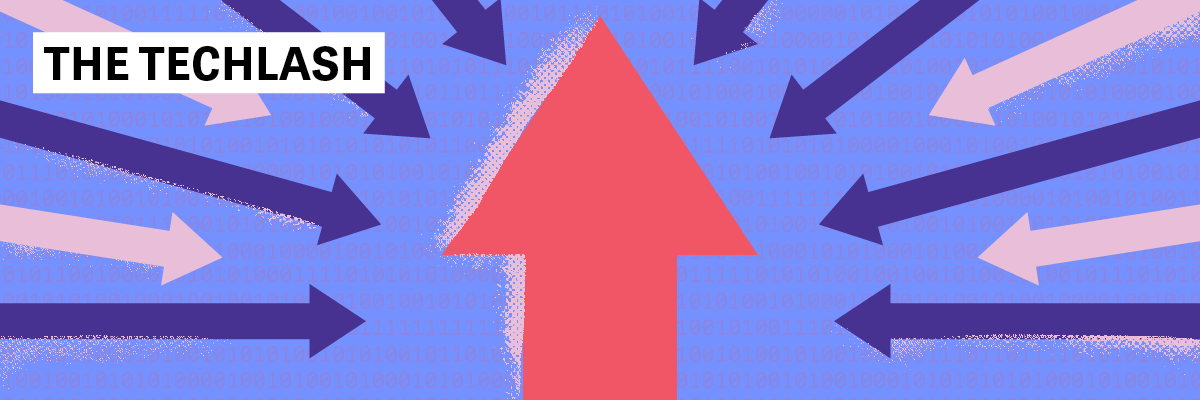
Just a few years ago, Americans were overwhelmingly optimistic about the power of new technologies to foster an informed and engaged society. More recently, however, that confidence has given way and fueled public concerns that have led to legislative and legal inquiries into technology companies. Scholars in Knight’s network offer differing takes.
The economic divide is larger than ever, and the renewed techlash is evidence that the public is concerned about tech’s growing power.
Becky Chao, Economic Security Project
- Full text
At the beginning of the pandemic, we weren’t sure if the tide was changing against Big Tech. … It seemed as though they were positioned more as heroes than villains. However, in light of the economic fallout, it’s clear that while millions of Americans are suffering more economic pain than ever before, Big Tech and its CEOs continue to hoard wealth and resources — all while exploiting Black and brown workers, creators and users. The economic divide is larger than ever, and the renewed techlash is evidence that the public is concerned about tech’s growing power.
One current trend that we expect to continue is the lack of trust in social media companies to effectively moderate their platforms against harmful content
Alexandra Givens, Center for Democracy and Technology
- Full text
One current trend that we expect to continue is the lack of trust in social media companies to effectively moderate their platforms against harmful content (e.g., the Knight/Gallup June 2020 survey). This perception is rooted in reality — few platforms have a clear idea of what their goals are when it comes to the delicate questions around the impact of content moderation on democracy, let alone good, evidence based solutions. This problem is compounded by the spread of misinformation around COVID-19 and disinformation campaigns around the U.S. presidential elections. Most people will continue to use these platforms even when their trust of them is low — leading to the need to understand what, if any, new patterns in social media use are emerging as people try to navigate mis- and disinformation and what that means for political participation.
It is becoming increasingly difficult to use the frame of either misinformation or disinformation in the work we are undertaking.
John Paolillo, Indiana University
- Full text
It is becoming increasingly difficult to use the frame of either misinformation or disinformation in the work we are undertaking. For example, as the COVID-19 pandemic illustrates, there are still considerable uncertainties around the scientific status of SARS-CoV-2 and the disease it engenders, as well as treatments that help or harm the condition. At the same time, ideologies arising from actors at various loci have had a major influence on distorting that state of knowledge. These varying ideological stances sometimes confound both governmental and non-governmental regulatory processes for evaluating information that crosses international institutional boundaries. Consequently, a more elaborated framework is required which is able to recognize the different ideological statuses of the same information in different environments, which is able to locate those ideological commitments in an international and local network of institutional interactions.
The mix of uncertainty, anxiety, social isolation, economic hardship, political instability, and spare time creates a near-perfect circumstance for conspiracy narratives to sweep through social media, stifling access to reliable information, casting doubt about the trustworthiness of mainstream journalism, government and healthcare agencies and fueling social discord.
Betsi Grabe, Indiana University
- Full text
The state of our union invites a media-generated infodemic. Citizens are in relative physical isolation beset by hourly shifts in information that pertains to a safe and predictable future. The mix of uncertainty, anxiety, social isolation, economic hardship, political instability, and spare time creates a near-perfect circumstance for conspiracy narratives to sweep through social media, stifling access to reliable information, casting doubt about the trustworthiness of mainstream journalism, government and healthcare agencies and fueling social discord. The firmer the foothold that misinformation gains among reasonable citizens, the weaker the collective resilience of our nation to navigate the medical, economic, and political aftermath of 2020.
When the pandemic ends, the techlash will be over.
Rob Reich, Stanford University
- Full text
When the pandemic ends, the techlash will be over. Sure, the press will still direct criticism at the big tech companies, but everyone now realizes that the large tech companies have provided the essential infrastructure to make possible work as well as personal and family life. So we will enter a new period of mature assessment of Big Tech, beyond techno-utopianism and techno-dystopianism. A window will open for serious policymaking for the first time. Scholars who have been working on these topics for a while will have opportunities to shape the policy debate. At the same time, the geopolitical AI and tech arms race between the U.S. and China will continue to heat up, and the outcome of the election will be important in determining the shape of this battle.
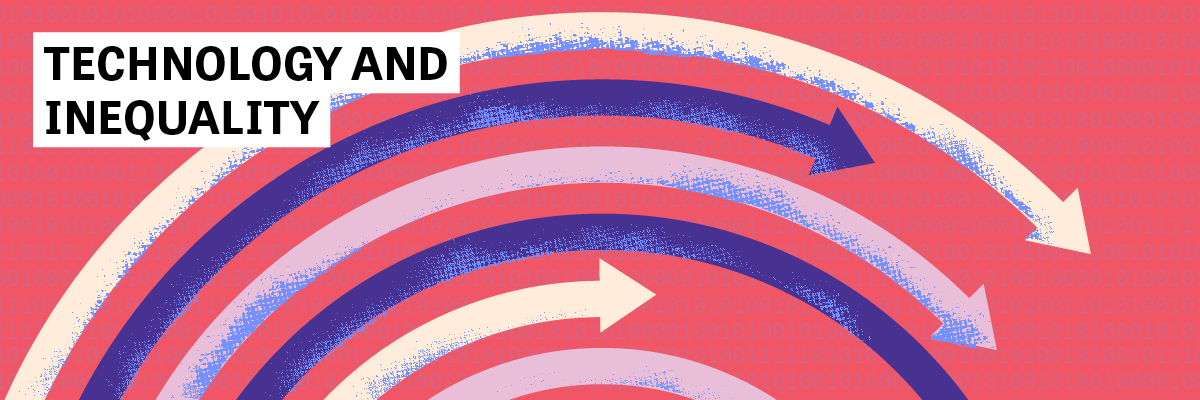
As our nation grapples with deep questions about equity and racial justice, many Knight-supported researchers are focused on shedding light on the disparate impact of technology on minority and vulnerable communities.
While many of the circumstances we are facing might be new to some, many of the questions here are not, and have been pushed into the mainstream by scholars and journalists who are women, women of color, people of color and LGBTQIA+ — identities to which we belong or are in solidarity with.
One of the biggest mistakes we have seen, particularly in fields characterized by “innovation,” is a tendency to apply technical solutions without an enormous amount of context, history or situational expertise.
Safiya Umoja Noble, University of California Los Angeles
- Full text
While many of the circumstances we are facing might be new to some, many of the questions here are not, and have been pushed into the mainstream by scholars and journalists who are women, women of color, people of color and LGBTQIA+ — identities to which we belong or are in solidarity with. Given that these voices are central to reimagining the future of democracy, we are also thinking about ways to build upon the wisdom and experiences of people and communities who have been working on these questions for some time. One of the biggest mistakes we have seen, particularly in fields characterized by “innovation,” is a tendency to apply technical solutions without an enormous amount of context, history or situational expertise. For the challenges we face in the second half of 2020 this will be one of the biggest hurdles, and we see the demand for greater investment in our voices, and the voices of our colleagues, students and interlocutors working on these issues.
Technology companies built in the 21st century fetishize globalized scale, often at the expense of marginalized communities in specific cultural contexts. Far from bringing the world closer together — as many early internet visionaries imagined — the technology companies birthed within the logics of late-stage capitalism are being used to reinforce systemic fissures and rupture already precarious social ties.
danah boyd, Data & Society/Microsoft Research
- Full text
As we sit here in 2020, U.S. democracy has placed limited checks on corporate and technological power. Technology companies built in the 21st century fetishize globalized scale, often at the expense of marginalized communities in specific cultural contexts. Far from bringing the world closer together — as many early internet visionaries imagined — the technology companies birthed within the logics of late-stage capitalism are being used to reinforce systemic fissures and rupture already precarious social ties. This weakens our collective ability to respond to global crises that require a global response. This also undermines democratic efforts to ensure that minority voices are not erased by a focus on the majority.
It is now clear that we need a much better understanding of the ties between identity and the effects of disinformation on beliefs and political behavior. We also need to focus much more attention on how disinformation, harassment and other forms of online abuse impact historically underrepresented and marginalized groups.
Rebekah Tromble, The George Washington University
- Full text
It is now clear that we need a much better understanding of the ties between identity and the effects of disinformation on beliefs and political behavior. We also need to focus much more attention on how disinformation, harassment and other forms of online abuse impact historically underrepresented and marginalized groups. Members of these communities have been trying to call attention to their experiences as targets of abuse, harassment, and attempted deception and manipulation for years. Since long before 2016, in fact. I certainly hope that, with all its hardships, 2020 has finally created a wake-up call among researchers that we need to listen to and take these perspectives seriously.
We need to more holistically ask and answer what a socially secure internet might look like. What would it take to shift from systems that produce harms to systems that center the experience of those most often harmed — namely, historically, marginalized communities — in their design?
Charley Johnson, Data & Society
- Full text
Violence and harassment online harms individuals, but on a broader level, suppressing voter or census participation harms the collective, leading to radicalization, extremism and the erosion of democratic deliberation. We need to more holistically ask and answer what a socially secure internet might look like. What would it take to shift from systems that produce harms to systems that center the experience of those most often harmed — namely, historically, marginalized communities — in their design? What would it mean to feel and experience actual trust and safety on social media platforms? What would it take to move beyond cultivating resilience to addressing the root causes of those harms and transform life online?
As disinformation campaigns are now very common in online political discourse and during elections in particular, some preliminary evidence from the U.S. and elsewhere suggests that there is a disproportionate negative impact on women politicians.
Alexandra Givens, Center for Democracy and Technology
- Full text
As disinformation campaigns are now very common in online political discourse and during elections in particular, some preliminary evidence from the U.S. and elsewhere suggests that there is a disproportionate negative impact on women politicians. … It is crucial that we develop a research agenda around the political impacts of disinformation on women and other marginalized groups in representative politics and on the right to free expression, particularly for these groups.
The systems of public and private surveillance that we build to respond to this public health crisis—data-driven, designed and deployed quickly in a time of urgency, and without significant public debate—could stay with us for a long time and fundamentally reshape our cultural values and institutional structures, with special dangers for the technologically marginalized.
Jeff Ward, Duke University
- Full text
Recent cultural and legal gains around the importance of privacy and data protection will be tested by the pandemic. For example, with urgent public health surveillance efforts such as contact tracing, our evolving understandings or what constitutes private data able to be withheld from public and private entities might be challenged. My personal health and my private movements might be seen as matters of public concern. The systems of public and private surveillance that we build to respond to this public health crisis—data-driven, designed and deployed quickly in a time of urgency, and without significant public debate—could stay with us for a long time and fundamentally reshape our cultural values and institutional structures, with special dangers for the technologically marginalized.
Though it may be preferable for platforms to choose to elevate content that, over time, has been considered more trustworthy and credible, particularly when it comes to medical information with the COVID-19 pandemic, there is increased recognition that some users, for instance prominent politicians, are not held to the same standards by platforms.
Robyn Caplan, Data & Society
- Full text
Though it may be preferable for platforms to choose to elevate content that, over time, has been considered more trustworthy and credible, particularly when it comes to medical information with the COVID-19 pandemic, there is increased recognition that some users, for instance prominent politicians, are not held to the same standards by platforms. Though it may be understandable that a platform will want to make decisions regarding the newsworthiness of information posted by these accounts, it is also becoming apparent that relationships between powerful actors and platforms also play a strong mitigating role in how content is governed.
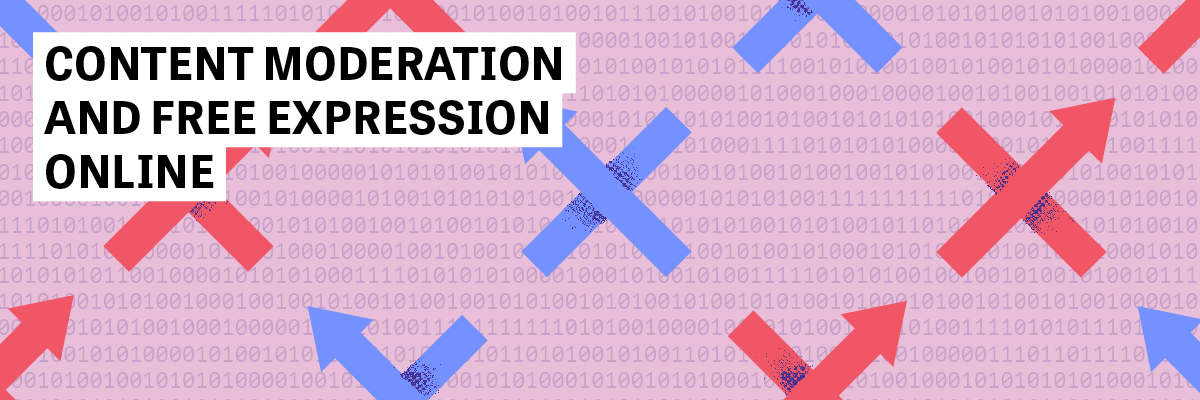
As policymakers and industry stakeholders take account of the broad powers technology companies have to mediate and censor online speech and consider proposals to amend Section 230 of the Communications Decency Act, the language that protects “interactive computer service” operators from liability from what’s posted by their users — many scholars in the Knight Research Network see a continued public debate about the future of free expression on the Internet.
Who bears responsibility for governing the internet, especially social media platforms, will become an issue not only for researchers, but also for voters, as both presidential candidates launch attacks on the platforms.
Paul Barrett, New York University
- Full text
Who bears responsibility for governing the internet, especially social media platforms, will become an issue not only for researchers, but also for voters, as both presidential candidates launch attacks on the platforms. While the politics may be shallow and even petty, the underlying questions are profound: What role should government play in regulating online content? What duties do the social media companies have to reduce harmful content and promote democracy? And how can users — indeed, the public at large — make its opinions and demands known in this crucial area?
The notion of political speech as a distinctly different and uniquely valuable category of speech seems to be becoming an increasingly difficult one for platforms to put into practice in their important role as moderators of news, information and political discourse.
Phil Napoli, Duke University
- Full text
I think a key question for both platforms and policymakers, in light of ongoing events such as the pandemic, is if/how meaningful boundaries can be drawn around the concept of political speech in a political environment in which virtually any issue, topic or fact can be politicized. The notion of political speech as a distinctly different and uniquely valuable category of speech seems to be becoming an increasingly difficult one for platforms to put into practice in their important role as moderators of news, information and political discourse. I unfortunately predict that their inability to effectively fulfill this role will become an even more prominent issue in the months to come.
In this particular moment, we will decide whether relatively rule-free and ungoverned social media can serve democracy (allowing individuals to navigate their way through increasingly dark terrains, but also having access to unprecedented freedom to communicate) or whether social policy and even regulation can provide the stability needed to vitiate problems such as polarization, hate speech, and democratic failure.
James Shanahan, Indiana University
- Full text
We are reaching a reckoning moment with technology and social media, much as we have reached a reckoning moment in all of our histories with previous media. In this particular moment, we will decide whether relatively rule-free and ungoverned social media can serve democracy (allowing individuals to navigate their way through increasingly dark terrains, but also having access to unprecedented freedom to communicate) or whether social policy and even regulation can provide the stability needed to vitiate problems such as polarization, hate speech, and democratic failure.
As the risks of flattening credibility becomes even starker, the role of platforms in accrediting or elevating some speech above other speech must be confronted and taken up by everyone, not just the companies themselves.
Jonathan Zittrain, Harvard University
- Full text
Our Knight-supported studies of misinformation reveal the degree to which expert knowledge and advice is no longer particularly privileged above punditry or other less-rigorously grounded expression. If we treat all speech as equal, we run the risk that even sound advice in the public’s interest from authoritative sources can be delegitimized on the basis of politics rather than science to the detriment of public interests — such as the politicization of a health measure like wearing masks. As the risks of flattening credibility becomes even starker, the role of platforms in accrediting or elevating some speech above other speech must be confronted and taken up by everyone, not just the companies themselves.
It will become evident that self-regulation efforts by social media platforms are insufficient to prevent manipulation.
Alessandro Flammini, Indiana University
- Full text
We live in an increasingly divided and polarized country, and such division makes our response to crisis and democratic processes way less effective than they should and could be. A lot of “entities”, including foreign countries, have spent a lot of money to exacerbate our divisions using social media and other means. We will see more of the same in the months leading to the election in November. It will become evident that self-regulation efforts by social media platforms are insufficient to prevent manipulation. My hope is that after November we will start re-thinking our communication spaces and try to imagine the technological and regulative steps that are needed to support accountability, transparency, trust, civility and the emergence of a common ground in our (political) discourse.
Everyday there are more examples of the ways in which social media not only recapitulates but also exacerbates structural inequalities.
David Kaye, University of California, Irvine
- Full text
It is already clear that a new normal has emerged in many aspects of life, and this is certainly true for the role of social media platforms. Everyday there are more examples of the ways in which social media not only recapitulates but also exacerbates structural inequalities; for example, the use of purportedly “objective” algorithms further entrenches existing inequalities. Yet the current tools and protocols of content moderation seem woefully ill-equipped to rectify these human rights issues. … We predict that the discourse around platform governance will expand to include alternatives to the content moderation model. As a result, platform oversight will become even more important: Oversight initiatives will need to explore these alternatives, as companies cannot be relied on to stray from their lucrative current models on their own. It will be even more important for oversight to be aligned with and a bulwark for human rights.
I’m deeply opposed to efforts from white nationalists who tend to identify with the right to overthrow longstanding institutions — elective government, civil liberties, the constitution, the market economy — in order to supposedly re-establish a mythical “white” ethnostate, and I’m also disturbed by efforts, largely from “woke” activists on the left, to overthrow these same institutions in the name of equity concerns. In a technological context, this raises particular concerns for me with regard to content moderation regimes online and the ability to preserve open debate even in privately owned spaces.
Eli Lehrer, R Street Institute
- Full text
Many events of 2020 haven’t so much raised entirely novel questions as brought existing ones into sharper focus. For example, growing political polarization — intensified by the events of the past several months — has led to a tremendous increase in the salience of content moderation regimes and debates over online intermediary liability. Likewise, questions about disinformation have become all the more important as bizarre conspiracy theories and an increasingly partisan mainstream media (itself properly skeptical of right-wing conspiracy theories and too accepting of those from the left) have both attracted more attention. Increased emphasis on the unfinished work of racial equity has raised a number of vital issues. While the great bulk of this activity, particularly the Black Lives Matter movement, has been socially salubrious, “the faults of bigots and enthusiasts” from the right and left have posed a major challenge to the institutions that undergird political liberalism, particularly in the online sphere. I’m particularly disturbed by Cato Institute polling showing that a majority of Americans with politics anything other than “strong liberal” have at least some views they are afraid to share in public. As a classical liberal, I’m deeply opposed to efforts from white nationalists who tend to identify with the right to overthrow longstanding institutions — elective government, civil liberties, the constitution, the market economy — in order to supposedly re-establish a mythical “white” ethnostate, and I’m also disturbed by efforts, largely from “woke” activists on the left, to overthrow these same institutions in the name of equity concerns. In a technological context, this raises particular concerns for me with regard to content moderation regimes online and the ability to preserve open debate even in privately owned spaces. While I oppose broad public policy interventions to deal with these efforts right now, I think that there’s a good deal of hope that a combination of cooperation and public pressure can deal with the real harms–just as it did in the comic book industry during the 1950s. The nation’s information ecosystem, a key pillar of our democracy, faces real problems. But I’m convinced that we can, and will, remedy them.
It is crucial that we begin to develop an evidence-based framework for restoring trust.
Alexandra Givens, Center for Democracy and Technology
- Full text
It is crucial that we begin to develop an evidence-based framework for restoring trust. Whether it’s more transparency around the type of content that is taken down and the reasons behind those takedowns, external accountability that actually increases people’s trust in online services, or simply to identify clear examples of disinformation and its impact, we must help restore consumer confidence in their ability to find trustworthy information online.
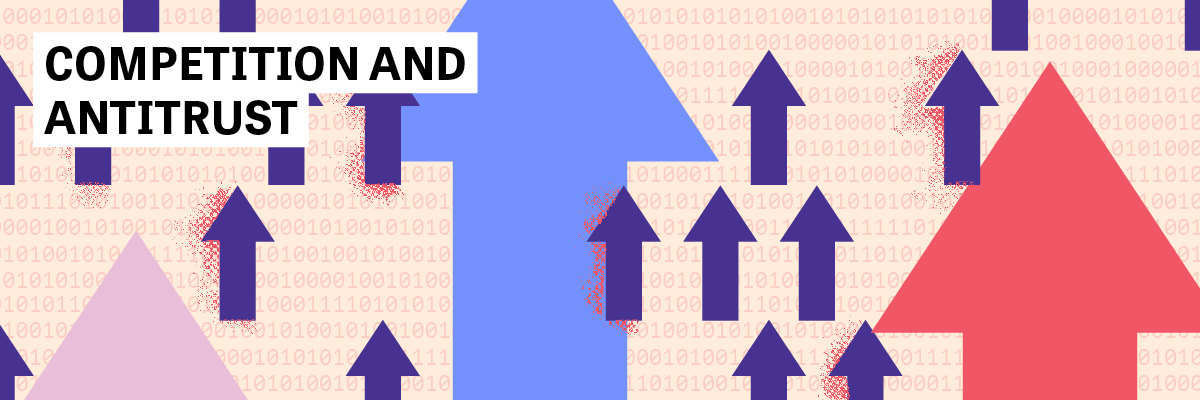
The growing roles internet technology platforms have assumed in recent years are owed in large part to their size, both in terms of data collection and market power. As more and more information is disseminated and consumed on digital platforms, the scale and competitive behaviors of these companies bring with them important ramifications for internet governance and our democracy. Knight has invested in a range of approaches to better understand the nature of competition in the digital age to help inform policy and regulatory approaches that will safeguard access to information.
As the COVID-19 crisis continues to unfold, powerful firms are surely looking to strategic consolidation to reinforce their market positions, whether by acquiring nascent threats or eliminating weakened rivals. For many firms struggling with the economic impact of the pandemic, the prospect of being acquired also is becoming increasingly attractive.
Diana Moss, American Antitrust Institute
- Full text
In the antitrust and competition domain, a key question for the second half of 2020 is whether federal antitrust enforcers will be able to apply merger law to adequately protect the economy from vertical and conglomerate mergers in digital technology markets. As the COVID-19 crisis continues to unfold, powerful firms are surely looking to strategic consolidation to reinforce their market positions, whether by acquiring nascent threats or eliminating weakened rivals. For many firms struggling with the economic impact of the pandemic, the prospect of being acquired also is becoming increasingly attractive. Antitrust law is well equipped to address horizontal mergers between rivals in concentrated markets, but many mergers in digital technology markets do not fit neatly into this mold. Instead, they may combine complementary assets that burnish the overall value proposition for a firm’s “ecosystem” of products and services. These combinations pose nuanced and challenging competition questions. … If [regulatory] agencies cannot meet the analytical challenges posed by these transactions, and overcome political pressure to apply merger law in unprincipled ways during the lead-up to a momentous presidential election, the results are sure to have a lasting impact on digital markets, the economy, consumers and workers, and innovation.
We anticipate continued pressure for enforcement actions coming out of the ongoing antitrust investigations
Becky Chao, Economic Security Project
- Full text
We anticipate continued pressure for enforcement actions coming out of the ongoing antitrust investigations, especially in light of recent speculation that a case might come as early as this summer and FTC Commissioner Rohit Chopra’s recent comments about the need for structural separation in antitrust cases that involve large amounts of data. We also predict that more attention will be paid to the revolving door between companies and the antitrust enforcement agencies and Congressional committees. The momentum from the Stop Hate for Profit campaign will hopefully also garner sustained interest between concentrated power and its impact on communities of color.
The year 2020 has been nothing short of a disaster for American democracy.
Jack Balkin, Yale University
- Full text
The year 2020 has been nothing short of a disaster for American democracy. Social media have unwittingly exacerbated a long-term decline of democratic norms in the United States, and contributed to democratic backsliding and authoritarian politics elsewhere. The Trump Administration’s interventions in technology policy have often been irrelevant, counterproductive, and corrupt. American politics today is as poisonous as it is stupid. Journalistic institutions are slowly dying.
Serious reforms must await a new Administration and a new political climate. Even so, there are tiny glimmers of hope on the horizon. A bipartisan consensus is emerging that tech companies need regulation. There is also a renewed focus on antitrust enforcement.
Unfortunately, both parties seem fixated on legislation that tinkers with social media content moderation. A far better strategy would aim at reforming the business models of surveillance capitalism that lead digital companies to act in the ways that they do. The United States still lacks comprehensive digital privacy legislation, and it needs both new competition policies and vigorous antitrust enforcement. Without these reforms, the problems will be unchecked and will grow even more dire, as social media and the internet of things shape more and more of our lives.
As before, Europe is likely to take the lead, both in privacy and competition law, and European regulators may have a greater impact on social media practices in the United States than our own representatives do. Unless American politicians face up to the problems created by surveillance capitalism, the United States will be a bystander to events, and quite possibly a victim.
We expect greater calls for regulation of digital platforms because of their amplification of hate speech, existential threat to journalism and anti-competitive behaviors.
Fiona Scott Morton, Austin Frerick, Yale University
- Full text
We expect greater calls for regulation of digital platforms because of their amplification of hate speech, existential threat to journalism and anti-competitive behaviors. These negative forces undermine America’s democracy and the function of its markets. We believe it is only a matter of time before regulation is enacted. The question now is what type of regulation will it be.
Regardless of who wins the 2020 election, tools like antitrust will be used more to advance political agendas.
Christopher Koopman, Utah State University
- Full text
Outside of the experimental lab, we’ve been doing a lot of thinking on the politicization of antitrust. In particular, how populism will push more activity out of the executive branch with divided government slowing down traditional legislative processes. One prediction is that, regardless of who wins the 2020 election, tools like antitrust will be used more to advance political agendas.
The rest of the year offers opportunity to engage in the debate over privacy and how it relates to issues of monopoly and free speech.
Phil Longman, Open Markets Institute
We are at a critical juncture to define whether the United States steps up and establishes basic regulatory policies or permits the dominant digital companies to continue to operate as pseudo-governments making their own rules absent public interest oversight.
Tom Wheeler, Gene Kimmelman, Phil Verveer, Harvard University
- Full text
Digital technology shapes our lives and livelihoods, yet the dominant companies have been able to build their positions free of government oversight, ignoring even basic common law principles. At a time of national upheaval and the existential challenges of pandemic, economic crisis and social justice, the search for solutions inevitably leads to the digital platforms — both as a source of problems as well as potential problem-solvers. We are at a critical juncture to define whether the United States steps up and establishes basic regulatory policies or permits the dominant digital companies to continue to operate as pseudo-governments making their own rules absent public interest oversight.
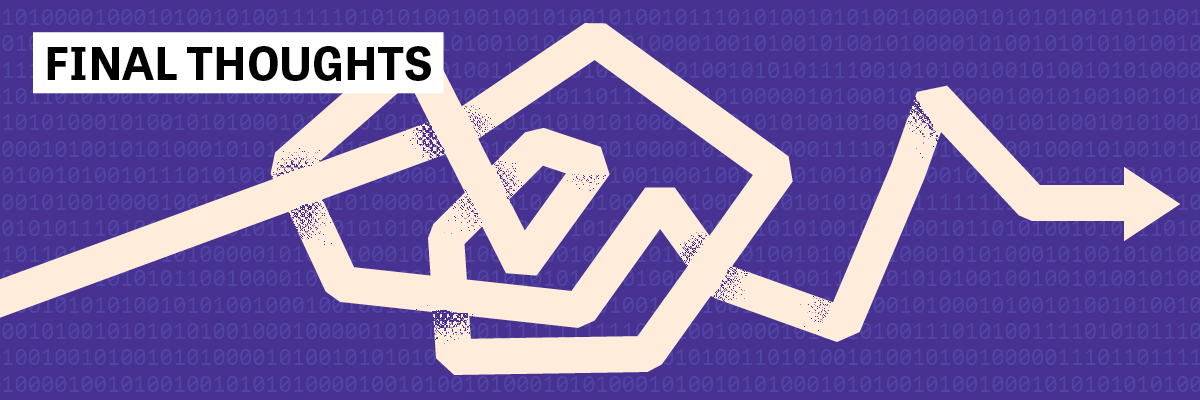
I don’t think the pandemic, protests, and elections necessarily introduced new questions about the impact of technology on democracy, but instead heightened a sense of urgency among a broader set of actors to find solutions and take action. The failure of the companies to solve these problems on their own terms and the contrast between the power and wealth of Big Tech and small businesses, workers, creators, and users has never been more apparent.
Chris Hughes, Economic Security Project
- Full text
As I look at the landscape, I don’t think the pandemic, protests, and elections necessarily introduced new questions about the impact of technology on democracy, but instead heightened a sense of urgency among a broader set of actors to find solutions and take action. The failure of the companies to solve these problems on their own terms and the contrast between the power and wealth of Big Tech and small businesses, workers, creators, and users has never been more apparent. My prediction is that in the next few months we’ll see pressure to enforce the law emerge from the ongoing antitrust investigations and increased attention paid to the revolving door between companies and the antitrust enforcement agencies and Congressional committees amid the transition period.
The final question … is whether we will see the platforms take meaningful actions to make data available out to public facing researchers
Joshua Tucker, New York University
- Full text
I think there are three related questions that are emerging regarding the relationship between technology and democracy in 2020. The first is the impact of quarantine upon people’s reliance on technology for access to information on politics. … The second question is whether the technology of voting will be up to the task of managing the dual challenges of an election during a pandemic and sustained efforts by both domestic and foreign actors to cast aspersions on the legitimacy of that election. Separately, both are huge challenges — taken together they are potential political dynamite, with sophisticated coordinated influence operations being employed to cast doubt on the results of an unprecedented election. The final question … is whether we will see the platforms take meaningful actions to make data available out to public facing researchers to be able to answer, for starters, the previous two questions. And if not, whether we will begin to see governments begin to compel them to do so, or alternatively begin to make it even harder for researchers to access these data.
One thing that has come into focus with respect to the pandemic is how sometimes group or collective good, particularly around privacy, may be at odds with individual good.
Evaluating and balancing this tension is a key pillar of democracy.
Madeleine Clare Elish, Data & Society
- Full text
I don’t do predictions. But I think about how existing tensions might be exacerbated, and one thing that has come into focus with respect to the pandemic is how sometimes group or collective good, particularly around privacy, may be at odds with individual good. In the case of public health, sometimes what’s good for the collective is not optimal for the individual. Evaluating and balancing this tension is a key pillar of democracy, and I think this tension between individual and collective harms and benefits will be at the forefront of what lies ahead.
Greater attention must be paid to why the pandemic commands different policy responses than “garden variety” disinformation and extremism, which can be equally destructive.
Nathaniel Persily, Stanford University
- Full text
The pandemic … poses new questions for academic investigation. First, new platforms, such as Zoom, deserve to be analyzed. Second, the topic of scientific or medical disinformation has become an important comparative case for election-related or political disinformation. Third, the dramatic countermeasures the platforms have taken to address [COVID-19]-related disinformation and the pandemic, in general, have now set a standard for how they should deal with other social problems. Greater attention must be paid to why the pandemic commands different policy responses than “garden variety” disinformation and extremism, which can be equally destructive.
We need to develop models that allow us to test, in silico, changes to platforms affordances, policies and algorithms as we fight to guard democracy.
Unfortunately, I currently believe the U.S. is on the verge of further, and possibly rapid, deterioration of its core democratic informational/policy institutions.
Richard Bonneau, New York University
- Full text
We need to develop models that allow us to test, in silico, changes to platforms affordances, policies and algorithms as we fight to guard democracy. Such models are within reach, and hopefully can be used to guide social media companies and regulators in the near future. Unfortunately, I currently believe the U.S. is on the verge of further, and possibly rapid, deterioration of its core democratic informational/policy institutions.
The twin “pandemics” of COVID-19 and structural racism seem to have created both the opportunity and a need to re-answer a fundamental question about the role of technology in our lives: What kind of internet do we want now?
Lisa Macpherson, Public Knowledge
- Full text
In the first half of 2020, the twin “pandemics” of COVID-19 and structural racism seem to have created both the opportunity and a need to re-answer a fundamental question about the role of technology in our lives: What kind of internet do we want now? Born of a utopian vision of boundaryless communication, trust in entrepreneurial founders, and a focus on growth and innovation, the internet has transformed our lives — but not always for the better. What are the respective roles of policy makers, business leaders, philanthropists and citizens to reshape what we should expect and demand from the platforms we rely on — now more than ever — for working, socializing, entertainment and information? And how do we convene the players in a constructive, collaborative way to bring it about?
Major innovations bring negative externalities and social disruptions that our governance frameworks must adapt to. While there is much debate about what these outcomes should be, we believe a more fundamental question is: How can we strengthen the institutions that make them? Do they have the right expertise, capacity and incentives to make good policy?
Garrett Johnson, Zach Graves, Lincoln Network
- Full text
We don’t see the current tensions over technology governance going away in the near term, and they may continue to escalate in the 117th Congress and next administration. Nonetheless, we’re optimistic about the long-term relationship between technology and democracy. While a great deal of attention has been paid to its downsides, new technologies also have great potential to strengthen democratic institutions, such as allowing more transparency and accountability, or giving regular people a stronger voice in policymaking. Major innovations bring negative externalities and social disruptions that our governance frameworks must adapt to. While there is much debate about what these outcomes should be, we believe a more fundamental question is: How can we strengthen the institutions that make them? Do they have the right expertise, capacity and incentives to make good policy?
With respect to predictions – we suspect that technology companies will continue lurching wildly to develop new policies related to misinformation, privacy, and civic engagement even as many of these companies already have policies they choose not to enforce.
Michael W. Wagner, University of Wisconsin Madison
- Full text
In order to establish a more nuanced understanding of technology’s impact on democracy, we will need to think carefully about how people’s identities interact with their information environment, the technology they use and the geographic context in which they live. Examining these issues in isolation from each other are no longer going to cut it.
With respect to predictions – we suspect that technology companies will continue lurching wildly to develop new policies related to misinformation, privacy, and civic engagement even as many of these companies already have policies they choose not to enforce.
I’m curious about the depth of Americans’ hunger for disinformation — will there ever come a point where there’s a movement that says “maybe lying is inherently bad, even if it does flatter my preexisting beliefs?” And what magnitude of tragedy might be required to inspire such a reconsideration? The only thing I’m certain of is our collective uncertainty.
Deen Freelon, University of North Carolina at Chapel Hill
- Full text
I doubt there’ll be a vaccine by the end of the year. There could be more conspiracy-mongering around the Deep State supposedly suppressing a working vaccine so Biden will win. In terms of questions, I’m curious about the depth of Americans’ hunger for disinformation — will there ever come a point where there’s a movement that says “maybe lying is inherently bad, even if it does flatter my preexisting beliefs?” And what magnitude of tragedy might be required to inspire such a reconsideration? The only thing I’m certain of is our collective uncertainty.
We can hope, therefore, that 2020 may mark a turning point in our maturation as denizens of the information age. Its lessons demand that we put aside childish and simplistic views of both the good and the bad sides of these technologies and come to understand them as sophisticated self-governing citizens should: as powerful tools that can do great good and great harm and therefore must be used responsibly.
Yuval Levin, American Enterprise Institute
- Full text
We can hope, therefore, that 2020 may mark a turning point in our maturation as denizens of the information age. Its lessons demand that we put aside childish and simplistic views of both the good and the bad sides of these technologies and come to understand them as sophisticated self-governing citizens should: as powerful tools that can do great good and great harm and therefore must be used responsibly. This has not been our society’s attitude toward the internet and social media so far. But it is the direction in which that attitude must evolve — with the help of informed scholarship, balanced leadership and responsible citizenship.

